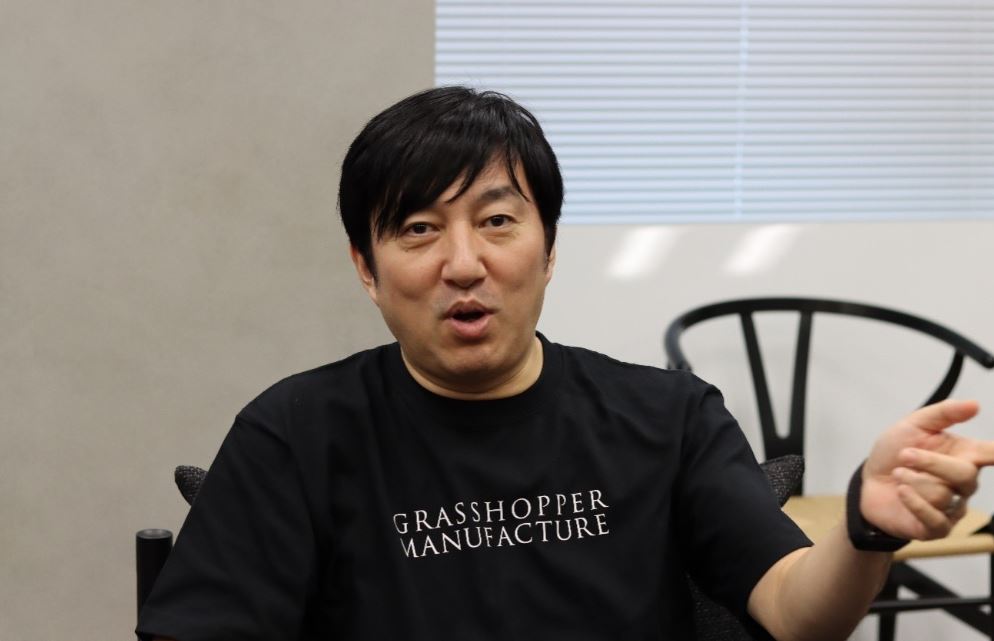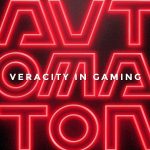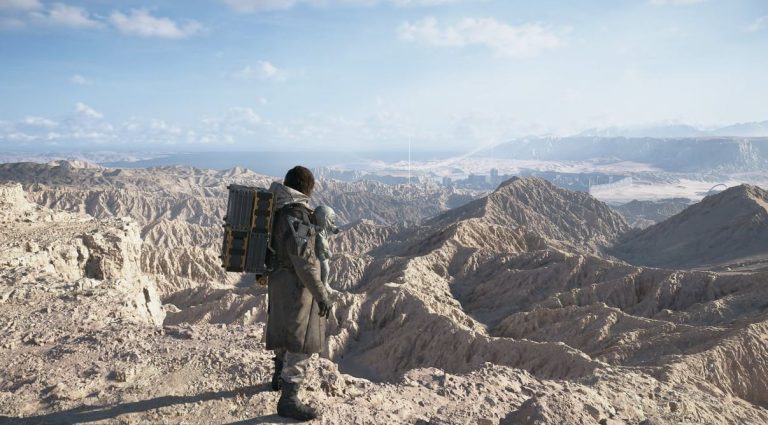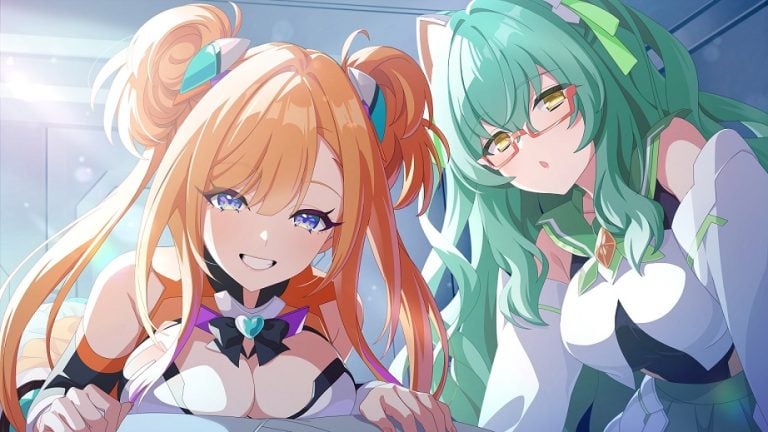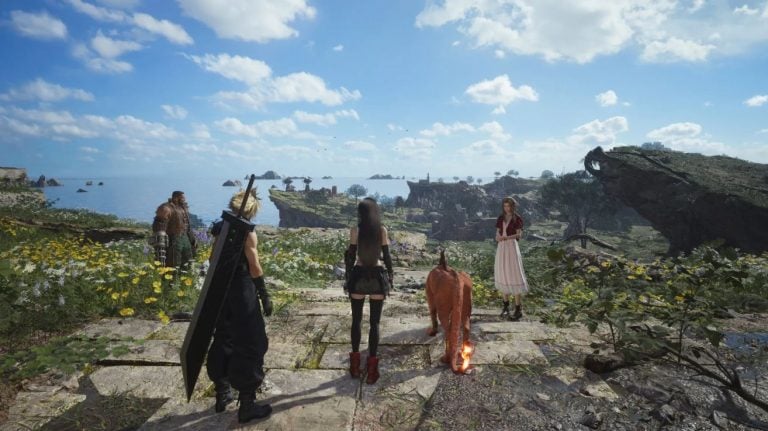NetEase Games and Grasshopper Manufacture released Shadows of the Damned: Hella Remastered on October 31 for the PC (Steam), PS5/PS4, Xbox Series X❘S/Xbox One and Nintendo Switch. AUTOMATON took the opportunity to interview Grasshopper Manufacture’s Goichi Suda (Suda 51), a key developer of the original Shadows of the Damned and the producer of the new remaster.
A remaster of what was originally envisioned as “Mar*o, but in He*l”
──Please introduce yourself.
Goichi Suda (hereafter Suda51):
I’m Suda, the CEO of Grasshopper Manufacture. I was the producer of Shadows of the Damned: Hella Remastered.
──What kind of game is Shadows of the Damned: Hella Remastered?
Suda51:
As our catchphrase, we described the original game as a “road movie through Hell.” But to put things simply, the princess gets kidnapped by the bad guy, and the hero sets off to save her – it’s a textbook plot, really. The structure and dynamics are basically the same as that of Mar*o, Princess P**ch and B**ser. You can think of it like “Mar*o, but in He*l.”
──Your games are known for their “edginess” and violence, but what makes Shadows of the Damned stand out?
Suda51:
The classic plot structure, and the fact that it’s my first love story. I pondered how to portray the romance between Garcia and Paula a lot. In fact, there were originally a lot more scenes involving the two of them, but they ended up being scrapped. All things considered, depicting the relationship between the two was a big challenge for me.
──Why did you decide to go for a love story in the first place?
Suda51:
Because if I was going to tell the story of a man who’s travelling to the depths of Hell to save his princess, I had to show why he’s willing to do so – by depicting the relationship between them.
──There had been talks about a Shadows of the Damned remaster for a while, I believe. Did things get moving after you joined NetEase Games?
Suda51:
Yes, we got started on the project after joining NetEase. We’d made some attempts even before that, but time just flew by without anything coming to fruition.
──Does that mean that NetEaseGames supported you in pursuing the remaster?
Suda51:
Yes, things went smoothly in this sense. Grasshopper Manufacture has 27 years under its belt and several IPs, so when we were about to join the group, I asked them to let us make the most of our IPs. Shadows of the Damned was the first such endeavor that we were able to realize.
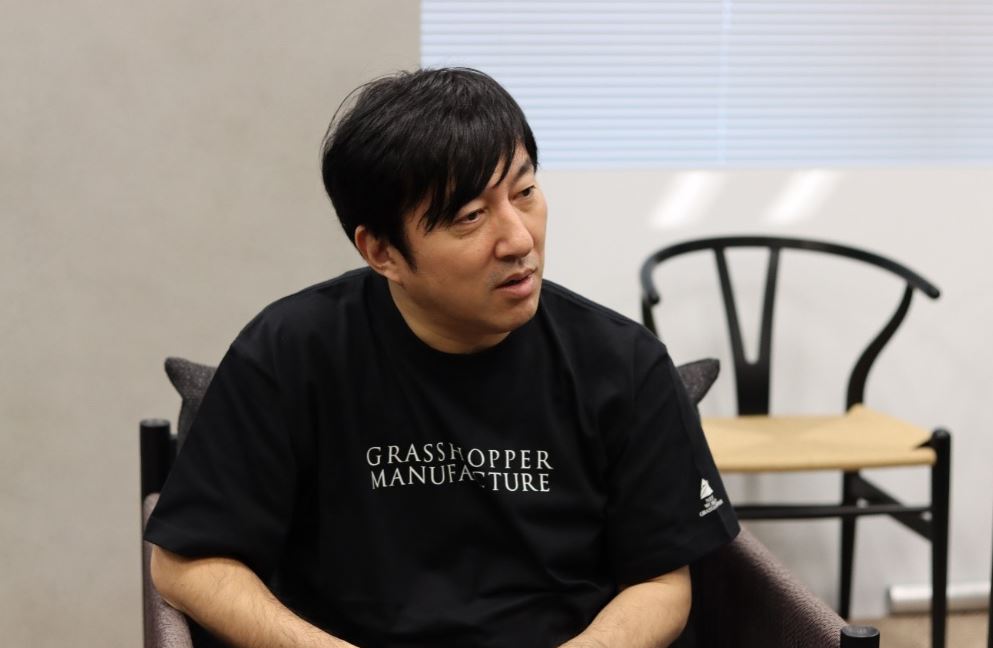
──I was wondering if becoming a part of NetEase Games made it trickier for you to express violence in your games? I feel like selling the game in China, NetEase’s home country, would come with some concerns like this.
Suda51:
Not in the slightest. I’ve never been told to be careful about such things.
──That’s nice to hear. Did Grasshopper Manufacture undergo any structural changes after joining NetEase Games?
Suda51:
We did some recruitment, so we’re now almost at maximum capacity. I think our floorspace could take only 1 or 2 new people at this point. We were able to secure a very comprehensive pool of human resources.
──How many development lines are you running at the moment?
Suda51:
In principle, we work with one big line. Although, we are starting up some smaller titles, so I guess “1 full line + a 0.2 line” would describe it well.
──So that means you have a big project that’s not Shadows of the Damned currently in development, as well as something smaller?
Suda51:
That’s right. To begin with, most of Shadows of the Damned: Hella Remastered’s development was outsourced.
──Tell us about the developer.
Suda51:
It’s Engine Software, based in the Netherlands. They also did the ports for killer7 and No More Heroes. Shadows of the Damned’s remaster was our third time working with them, so they’re a trusted partner of ours. I originally consulted Engine Software about porting Shadows of the Damned, and now we’ve finally made Hella Remastered. They were very reliable.
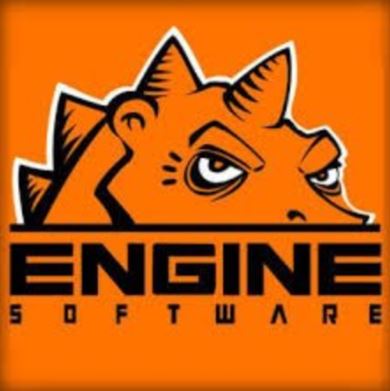
──What were you able to improve in the game with the remaster?
Suda51:
The biggest thing was adding New Game+. It lets you play again from the beginning in your strongest state, something we were not able to do in the original. There were issues with rendering, and since the game has fixed points for obtaining each weapon, the weapons from later sections of the game didn’t work on the early-stage enemies. We redid all of these settings to make New Game+ work.
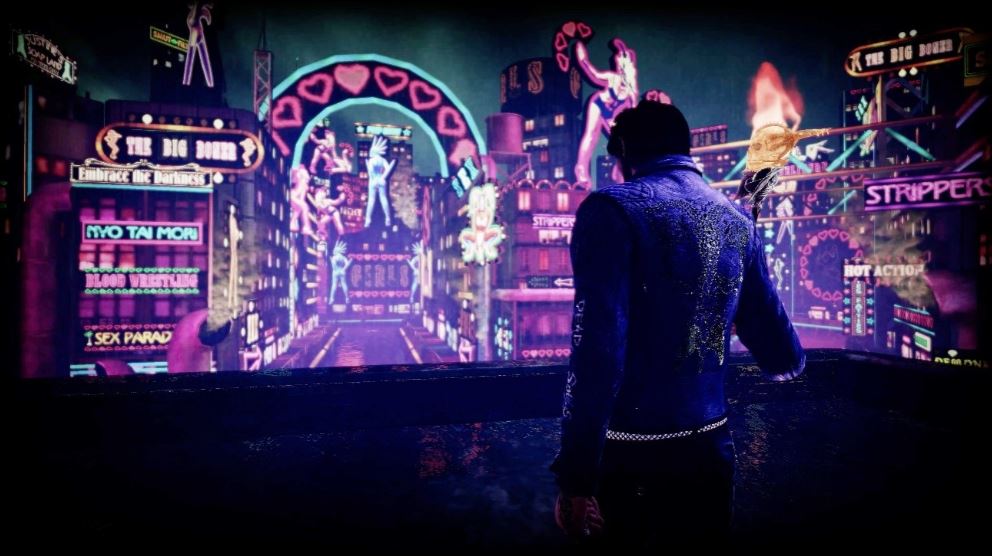
──It’s interesting how technical limitations prevented you from having New Game+ in the original.
Suda51:
Designing the game without New Game+ in mind was part of the problem, but we also had the issue of in-game effects becoming too much for rendering to keep up with, leading to crashes. Memory load was definitely a limitation back then.
──Your studio was quite pressed when the original game came out too, I believe.
Suda51:
We had a rather unnatural division of labor back then. We had over 20 foreign staff members, and things were basically divided between an overseas faction and a Japanese faction. Also, we used to split up the work into chapters, so there was a lack of coordination between them, and development felt kind of disjointed. Communication was completely divided between Japanese and English, so yeah, I would say this was also a part of why we couldn’t achieve New Game+ in the original.
──So the remaster allowed you to come back and finish what you originally set out to achieve?
Suda51:
That’s right.
──When you were developing the original Shadows of the Damned, you had Shinji Mikami (hereafter Mikami) on board, but was he involved in the remaster too? You’ve been appearing together for Hella Remastered’s interviews and the like, so I was wondering about his role.
Suda51:
Mikami is supporting us with promotion. He participated in the development of the original game, so he’s like our special cheerleader this time around.
──A cheerleader?
Suda51:
I even took him with me to Germany (Suda and Mikami appeared together at Gamescom 2024 in Cologne, Germany). I used any means I could think of and basically dragged him with me. He supported me as much as he could before he went, “Suda, I can’t handle any more.”
──You were appearing together before the media as if it’s a given, so I was sure he was somehow involved in the remaster’s development, but…
Suda51:
He’s our super executive cheerleader. An extremely powerful one.
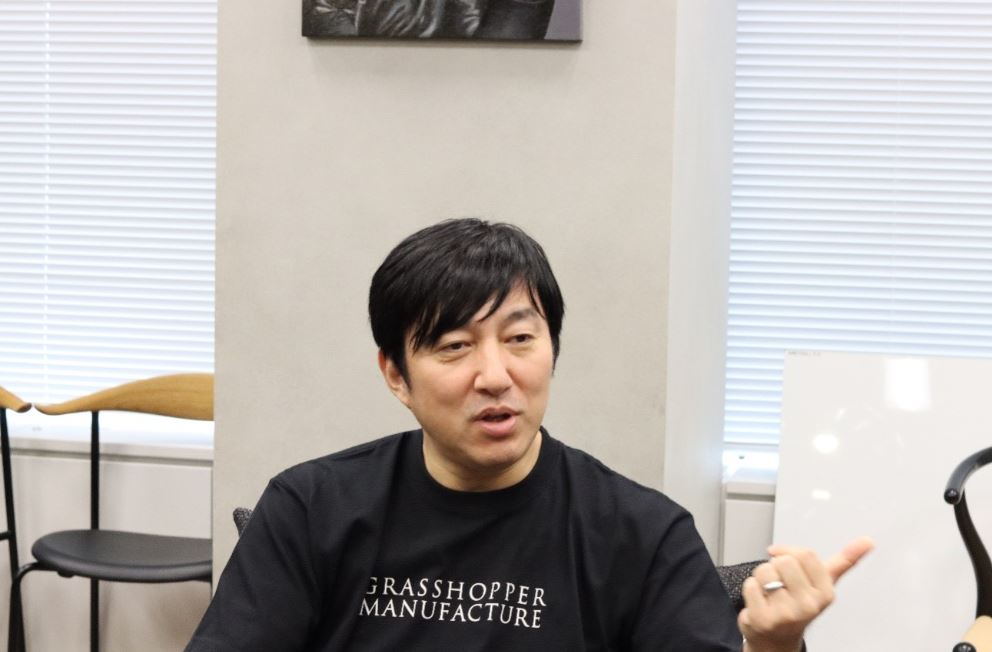
──(laughs) You were putting out a bunch of games around 2011, when the original Shadows of the Damned launched. When you look at yourself now compared to back then, do you feel like you’ve changed?
Suda51:
The CEO work was tough on me back then. In 2013, we became a subsidiary of GungHo and ceased being an independent company. When I compare what things were like before that, in 2011, and what they’re like now, I can really feel that the burden of things like business management and financial management has become much lighter, and I’m able to focus a lot more on directing – on game development.
──It’s been 13 years since then, but have you felt your passion for creativity and expressing yourself wane?
Suda51:
No, it’s only grown more intense. In fact, I feel like it’s not enough yet. I want to push things to the very limit.
──Is it because you’ve come back to handling development more directly?
Suda51:
Yes, I’m far more deeply involved in development now than I was ten years ago. Back in 2011, there were just so many titles I was involved in, but I was supervising them as a general director. It was difficult to really get hands-on in development.
──In contrast to that, you’re now able to put more of yourself into one title?
Suda51:
Yes. Back then, I’d always get a ringing in my ears. Like my brain wasn’t getting enough oxygen. I had too much to think about. I was getting enough sleep, though, at least.
No matter how much change it’s been through, Zelda is an all-time favorite
──How do you see the current game industry?
Suda51:
Each era has its trends. I try not to be overly conscious of them, and I try not to chase after them too much. There are plenty of amazing games and plenty of amazing indies. I think well-made games have definitely multiplied – compared to ten or twenty years ago, there’s an overwhelming number of entertaining games coming out. However, I really try not to be too conscious of them.
──Something like shutting out input?
Suda51:
I don’t really think about it. I don’t consciously try to reject input, but I don’t actively pursue input either. It’s not like I’m trying to concentrate exclusively on output either. Instead, I just want to be as natural as possible and maintain the same kind of outlook gamers around the world have. For example, just having normal reactions like, “Wow, Atlus’s new game is awesome.”
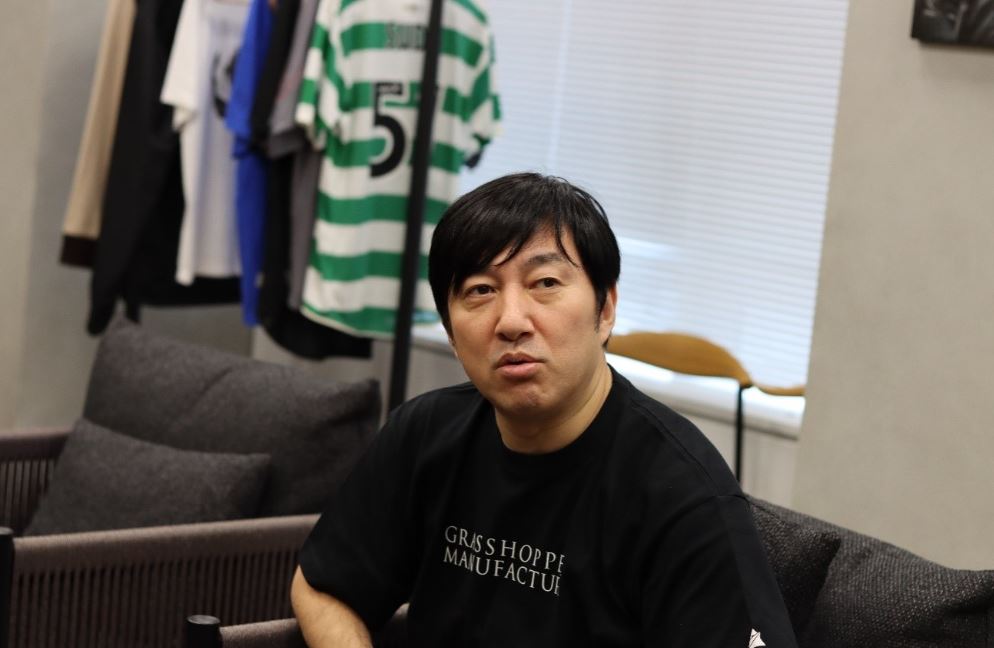
──Are there any games that have strongly influenced you?
Suda51:
It’s got to be The Legend of Zelda, without a doubt. The Zelda games have always been my number one. I’ve already cleared Echoes of Wisdom, and I’ve collected all Korok Seeds in both Breath of the Wild and Tears of the Kingdom.
──You’re a real fan. Have you been playing the Zelda series since the first game?
Suda51:
Yes, I’ve been playing since the very beginning.
──But… I feel like your games have nothing to do with Zelda… ? (laughs)
Suda51:
They do, they do. No More Heroes is Zelda itself. If you take Zelda,El Topo, and Jackass and mash them together, you get No More Heroes.You have a main field and dungeons, right? No More Heroes has dungeons for each assassin, and the structure itself is basically that of Zelda’s. When I was making No More Heroes, I really wanted to make “Z*lda, but in a world of a*sassins.”That’s how it came to be.
──The Zelda series has gone through a lot of change throughout the years, but do you still like it all the same even with the changes in style?
Suda51:
I absolutely love it! Each Zelda game is superb. The latest one, Echoes of Wisdom, is really entertaining too. It’s very well made.
──So you’ve been influenced by Zelda ever since the first game?
Suda51:
Yes, of the video games I’ve played, the Zelda series has had the biggest impact on me.
──By the way, which Zelda title is your favorite?
Suda51:
Zelda II: The Adventure of Link is my favorite. I have vivid memories of going to line up at a 24-hour game store the day before it launched and then playing it till completion without stopping to even sleep. I couldn’t get enough of that eureka moment you get when you solve a puzzle, and I’ve always loved that about the series. It continues to be entertaining even at the age I am now. Zelda is amazing.
If I were ever in a position to do something with a Nintendo title, I’d take Zelda II and–… No, they’re gonna get mad at me, aren’t they?
──Would you like to make an open-world or open-air game?
Suda51:
I would like to, but it’s not a field you can get into so easily. Look at what all games like Breath of the Wild and Tears of the Kingdom have accomplished. As a creator from the same industry, it makes my blood turn cold. It makes my stomach hurt. You can go to basically any place you can see; you can use all kinds of modes of transportation, the crafting has been upgraded to an astonishing degree, you can even go underground… But despite there being so much content, so much to do, it still isn’t enough. I still find myself wishing for DLCs. Gosh, It’s just so good.
The pro-bono guest appearances at Devolver Digital
──You often appear in Devolver Digital’s E3 shows. How did the collaboration come to be? It doesn’t really smell like a business arrangement to me.
Suda51:
Well, I don’t get paid for it, so I think you’re right about what you’re smelling (laughs). I’ve heard that other people get paid, but I don’t get paid anything. Oh but, I do get game codes from Devolver Digital in return (laughs).
──Seems like an awfully small form of remuneration (laughs).
Suda51:
I get codes for all Steam games!
But actually, we’re always talking about collaborating. It started from me being a big fan of Hotline Miami. Two people from its studio, Dennaton Games, liked our games and we got close, and from there, I made a connection with Devolver Digital.
We’re on the same wavelength, so whenever we meet overseas, we get together for food and stuff. It’s a fun relationship, and I think of it as friendship more than business. Of course, I would like to collaborate sometime.
──So, you not asking for remuneration has contributed to a friendly connection?
Suda51:
Yeah, but I would like to be paid! (laughs)
──It’s a way of showing respect, after all…
Suda51;
Yes, exactly (laughs).
“Everyone cares too much about Metacritic Scores” kind of blew up
──Have you seen the response to that comment you made to GamesIndustry.biz about everyone caring too much about Metacritic scores?
Suda51:
It… blew up, right? I had no idea at first. We were having a weekly meeting with NetEase Games, and they were like, “This is becoming huge,” and I thought, “What is?” It was even becoming a hot topic in Japan, so I thought I’d messed up or something. But it wasn’t a big deal, I’m not concerned and no one’s getting mad at me.
──You don’t feel like you said too much, or maybe too little?
Suda51:
Well, I do hope that people get the nuance I was going for. What I wanted to say was that there are people who give the games we make scores like 0 or 20. I think 0 can’t possibly be a fair score, but studios like ours, who make games that disregard standard forms of expression and standard mechanics, often fall through the cracks when it comes to reviews.
And when things are like that, there’s really no point being concerned about scores given by the media. Instead, it’s the user reviews that are important. I want to know if the gamers who went out of their way to buy our new game had fun playing it, if they thought it was good or not. That’s actually constructive for us. I think it’s no use trying to get a 100 from someone who gave you a zero. That’s what my statement was about.
──So, some parts of your statement escalated on their own a bit.
Suda51:
Yes, perhaps.
──This could be related to developers being conscious of Metacritic scores too, but recent games tend to have less of an edge to them. How do you feel about this?
Suda51:
I am slightly conscious of it. I have moments when I reconsider things that will obviously result in a score deduction. I don’t think it’s a good thing, though. For example, when I mention that I want a tough-love kind of save system with no checkpoints and only savepoints, my staff will say, “That’s not a good idea, you need to be generous with auto-save in this day and age,” and in these kinds of situations, I end up compromising.
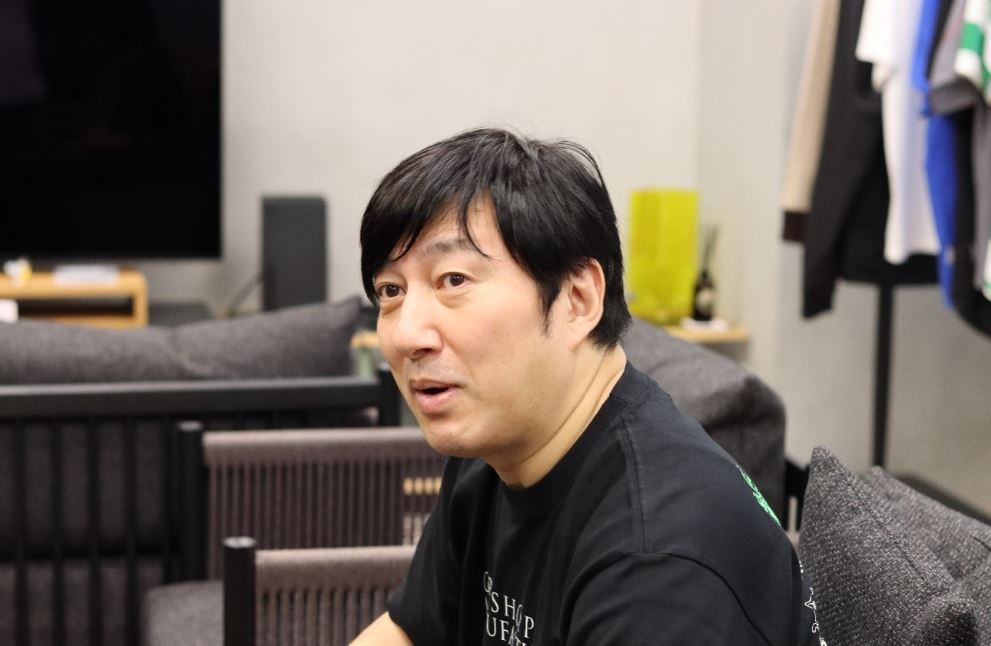
──I understand. It can be a fun gimmick to reset progression all the way back to a distant savepoint when the player dies. Adds to the sense of loss too.
Suda51:
Exactly. I want to experiment with some dirtier mechanics, but I think that things like this from back in the day don’t get accepted so easily anymore.
──So, you’ve become a bit conscious of reducing the player’s stress?
Suda51:
A bit, maybe. Zelda games are kind in this sense, so maybe I should learn from them.
──It’s like Zelda’s your main criterion for judging everything (laughs).
Suda51:
Without a doubt (laughs).
Games like The Silver Case may not be making a comeback
──Do you have any plans to make more games in the adventure genre, like The Silver Case or Flower, Sun and Rain?
Suda51:
No, I don’t think I’ll be returning to adventure games. I don’t think I have the time to write so much text anymore.
──Do you not write text much anymore?
Suda51:
I still write. I keep writing even while I’m on business trips, so it’s not like I’ve stopped. But it’s become more about how to structure text within an action game. It’s no longer acceptable to just write a massive volume of text. The amount of text equals the length of the game, and the length of the game equals the expenses. I consider this as I write, and I also structure my scenarios while thinking about how each part will appear and connect in-game. That’s the style of scenario writing I’m doing now.
When I think about it like that, writing scenarios for text adventure games might actually be easier. You can just write to your heart’s content. The volume of text equals the volume of the game itself, without inflating other expenses. Except for translation costs, I guess.
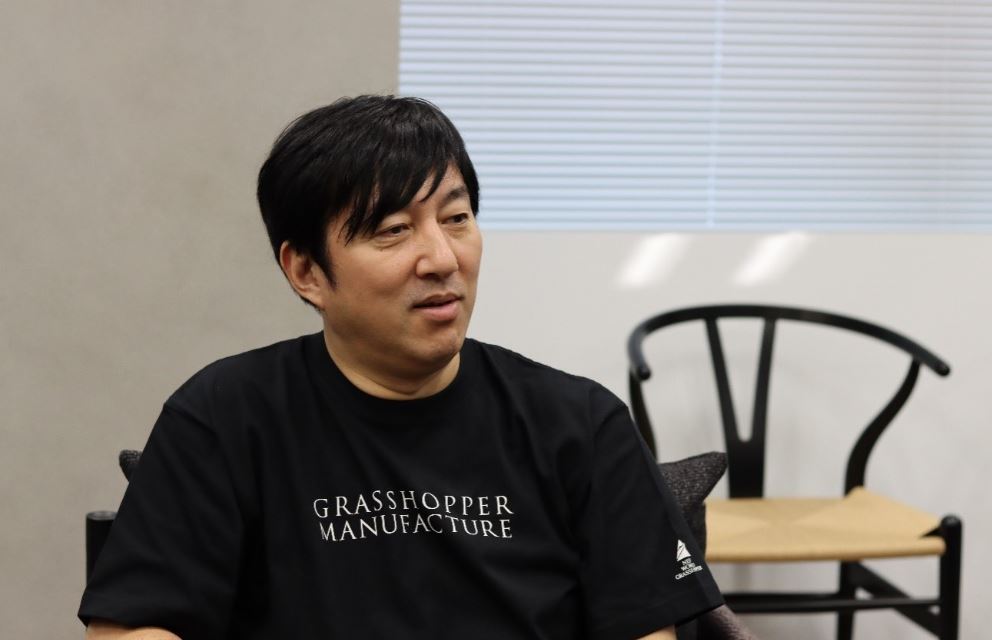
──Suda-san writes the scenario and then the game’s specifications are built around it – that’s the kind of process I’d been imagining you use, but how do you actually work now?
Suda51:
My way of doing things is generally like that, yes. But currently, I’d say we’re doing more of the opposite.
──Would you say that you’re adapting your style of working so that it’s more compatible with the needs of large-scale development?
Suda51:
Am I adapting my style… I wonder (laughs). But, but the author-centric approach to making games is definitely not very compatible with large-scale development. That’s why I have to do things like volume control and damage control along the way.
──And that’s when “Suda the CEO” makes an appearance, rather than “Suda the creator”?
Suda51:
There are demons called “schedules” and “budgets” we have to fight against, after all. And when the time comes, I’m the one who has most control over things, position-wise. So, I have to think about these things – however, if you set your plan in stone at the beginning, you can end up not being able to accomplish it. It’s quite tricky to handle. I’m always looking for the right balance between running things flexibly and running things tightly, and it differs for each project.
──Which one are you leaning towards for your current work in progress?
Suda51:
I’m very easy-going this time.
Both:
(laughs)
──Does that mean you’re allowing yourself to be more unfiltered?
Suda51:
Well, perhaps. I’m balancing things out as I go.
──Your next title is still fairly far off, I presume?
Suda51:
I think I should be able to share something in some form next year. We had some leeway at the start, but now we have deadlines approaching, so we’re getting ready for the home stretch.
──Lastly, would you like to add anything about Shadows of the Damned: Hella Remastered?
Suda51:
There are four new costumes added to the collection. One is Placa Garcia, Garcia’s regular shirtless fit that shows off his tattoos, and another one is Demonio Garcia. Demonio Garcia is inspired by a mechanic we envisioned for the original game but couldn’t implement. We planned to make it so that when Garcia’s health runs out due to Darkness exposure, he turns into a demon for a short time before dying and becomes really powerful. The new costume in Hella Remastered is Garcia’s beast mode, and it doubles his attack power when equipped.
Moving on, there’s the Kamikaze Garcia costume. This one is a reference to Wataru Kamikaze, the protagonist of Kurayami Dance, a manga series I collaborated on with Shuji Takeya a long time ago. Lastly, we added the Eight Hearts or Ocho Corazones costume. This is a reference to Eight Hearts, the humanized form of Johnson, who appears as the protagonist in Shadows of the Damned’s sequel within Travis Strikes Again: No More Heroes. That’s all four of the costumes. I hope you pick up the game and enjoy it!
──Thank you for your time!
Shadows of the Damned: Hella Remastered is available now for the PC (Steam), PS5/PS4, Xbox Series X❘S/Xbox One and Nintendo Switch.
Translated by. Amber V

